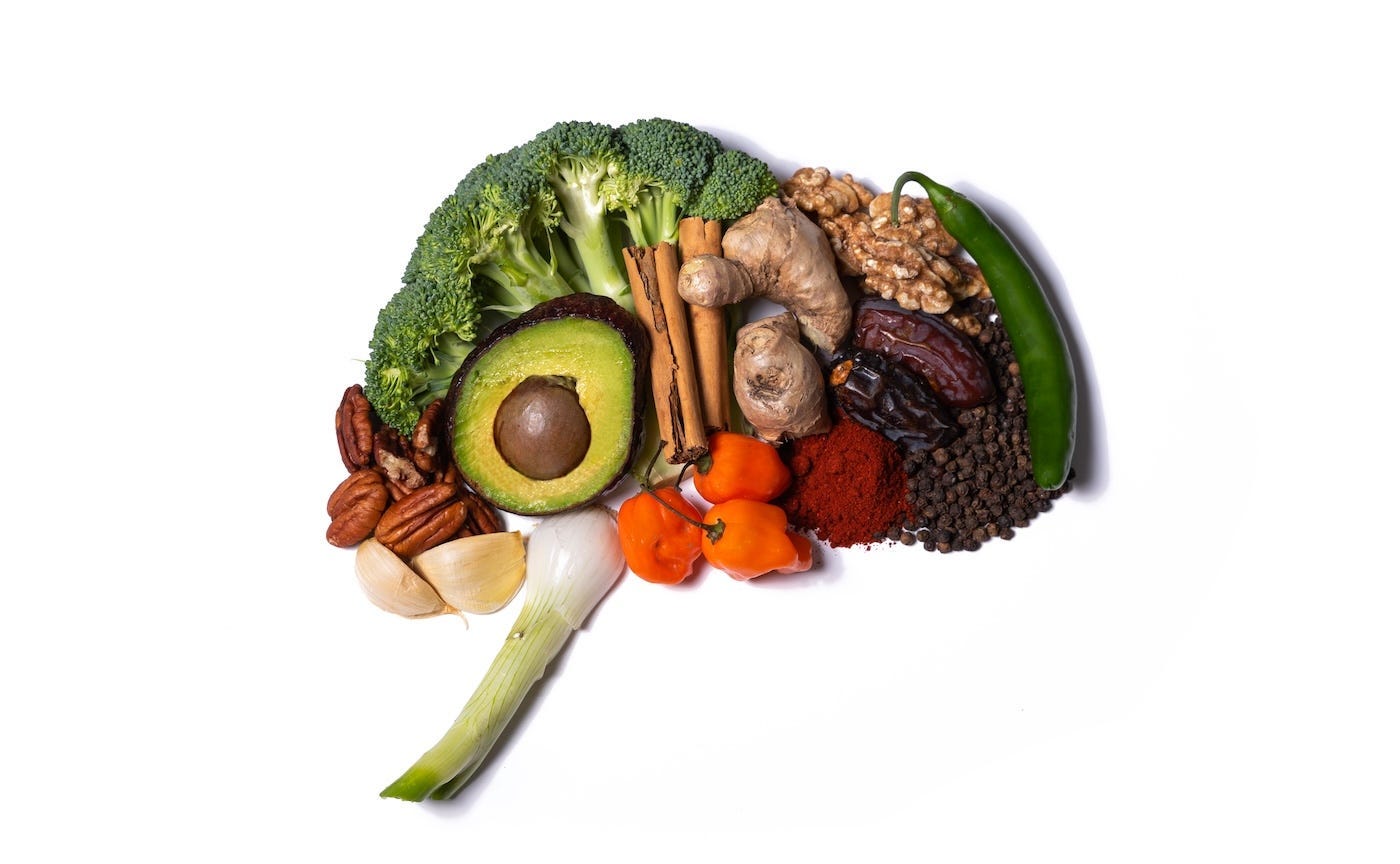Welcome back to your weekly dose of wisdom and wellness, written by Wise & Well’s editor, Robert Roy Britt. Below you’ll find several informative and actionable stories by our team of journalists, topical experts and practicing professionals. First, this week’s news brief:

You can’t toss a paper airplane at a health conference without hitting a new scientific paper that espouses the benefits of eating better and moving more for brain health. There are, of course, many factors that help keep the mind functioning well, from genetics to age to good sleep, and of course good nutrition and plenty of physical activity.
A new analysis compared health data on 374 people ages 19 to 82 with their scores on a test called “flanking,” which measures mental processing speed and accuracy and how well people can concentrate on a central arrow that’s flanked by arrows pointing in the same or opposite direction. The key findings, reported this week in the Journal of Nutrition:
Age, blood pressure and body mass index were the strongest predictors of success on a test called the flanker task, which requires participants to focus on a central object without becoming distracted by flanking information. Diet and exercise also played a smaller but relevant role in performance on the test, the team found, sometimes appearing to offset the ill effects of a high BMI or other potentially detrimental factors.
What you can do with this information: The mind and body are inextricably linked, so all the behavioral choices you make have short-term effects on your mood, your energy level during the day, and how well you sleep at night, and they have long-term effects on bodily health, your immune system, and mental abilities.
Whenever I ask experts how someone should go from bad health behaviors to better ones, they invariably suggest taking it one step at a time. If you don’t move much, start going for walks. If you eat poorly, replace one unhealthy snack each day with one healthy fruit or vegetable. Those two changes alone can improve your outlook, help you sleep better, and give you the energy to add more positive change.
Here are some related deep-dives from the Wise & Well archives:
And now, here are this week’s feature stories:
Physical Activity After Colon Cancer Treatment Helps Prevent its Return
You’d have to be sitting under a rock to not know that movement is healthy (just see the news brief above!). Physical activity—be it walks or time at the gym, sports or hard work—boosts everything from moods to the immune system. So no surprise that people recovering from cancer do better when they exercise. But it’s good that scientists have studied this, because now have data to back it up. By Annie Foley
Boost Your Child’s Brain Power with Bacteria, Fungi, and Worms
Lots of advice on how to eat for better brain health focuses on one so-called “superfood.” But there are no perfect foods that’ll supercharge brain health or health in general. Overall diet can matter greatly, however. This scientist has great advice for what to eat and other healthy behaviors to support an strong gut microbiome and better brain health, and she’s experimenting with her own kids. By Dr CJ Yatawara
Face Tattoo Measures Ideal Productivity Zone
When you’re bored or disinterested, it’s near impossible to be productive. But when a task requires too much mental effort, productivity slows or ceases, too. A new prototype “face tattoo” measures brain waves and eye movements to find that sweet spot where stuff gets done. Knowing this zone exists can help you find it on your own. By Robert Roy Britt
Life is Narrow for People Who See Everything as Good or Bad
A philosopher and author of The Art of the Interesting explains how snap judgements lead to a dichotomous view of the world—seeing everything as either good or bad—and how narrowing this is for our view of the world and our sense of self. If you want to be happy, the writer argues, you need to acknowledge that there’s more to life than the extremes you think you’re seeing. By Lorraine Besser
What’s Your Moral Obligation to Future Generations?
Be honest. When you opt for a plastic bag at the supermarket, choose to drive or walk to work, decide whether to join a protest or not, among the important factors you consider is how the choice will affect your life now. If you instead leaned more into how your choices would affect your grandchildren’s children, you might make different choices, research finds. By Stylianos Syropoulos and Kyle Fiore Law
Trigger for Chronic Pain Discovered
For several years now, scientists have been building a case that some forms of chronic pain are like a memory, a sensation stored in the nervous system even though there’s no injury or ailment. New research bolsters that notion. Nerve cells in the brain stem relax when we’re hurt, so that acute pain doesn’t overload the brain with pain signals, the scientists found. But sometimes those cells malfunction, firing nonstop for no reason. The discovery could lead to new treatments. By Robert Roy Britt
I hope we’ve helped make your tomorrow a little better than today. Feel free to forward this newsletter to friends who might appreciate it.
Cheers,
Rob



